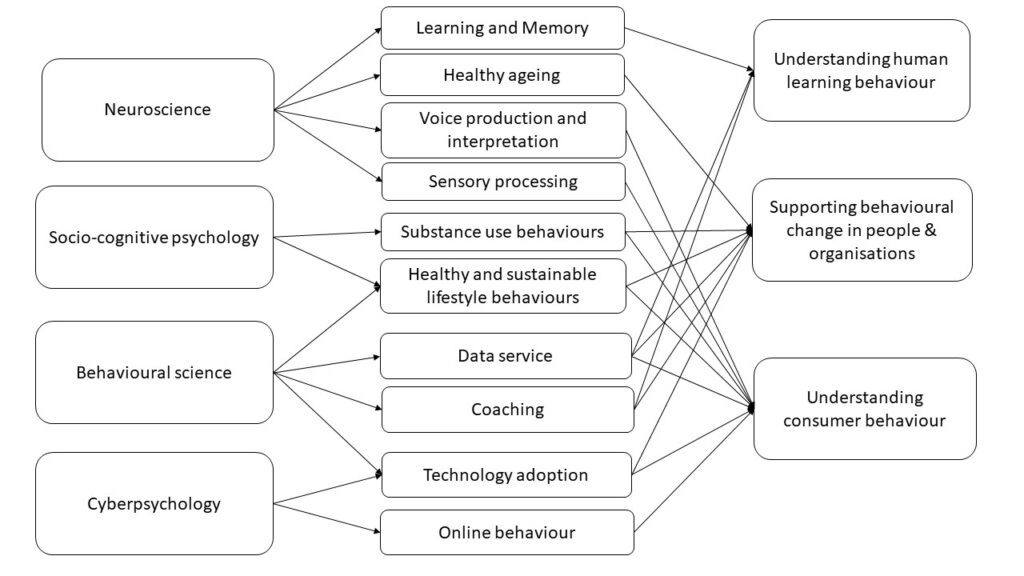Psychology Knowledge Exchange
We are committed to making sure our research insights and expertise can be used for societal and/or economic impact.
We have a variety of services which are designed to support individuals and organisations apply psychological research expertise to support their business needs. This might include: supporting business strategy and operational management, using data insights and analyses, maximising marketing and communications, supporting human resource management and/or supporting employee capacity-building and professional development.
Based on our internationally-recognised research, we have expertise in:
- understanding human learning behaviour
- supporting behavioural change in people and organisations
- understanding consumer behaviour
Continuing Professional Development (CPD) training
We can offer various CPD short courses, which are typically delivered as half-day courses.
Services
We have a range of services which support us to work with you to support your business or organisational needs.
Facilities and Equipment Hire
We have a wide range of state-of-the-art laboratories. equipment and tools.
Explore More
Knowledge Transfer Partnerships
We can work with you to address key strategic projects or challenges you might be encountering within your business. You can access leading knowledge and research through Knowledge Transfer Partnerships (KTPs).
KTPs are supported through grant funding by Innovate UK. Small-to medium sized enterprises (SMEs) are eligible for up to two thirds of the costs of the KTP supported by grant funding.
KTPs can last between 12 to 36 months where the knowledge is transferred from the University into the business via academic expertise and one or more graduate level Associates, employed for the life of the project to deliver its aims.
Innovate UK’s priority is to fund KTP projects which demonstrate the potential for a high level of innovation, economic and/or societal impact.
Here are some of the strategic challenges our psychology expertise can help you address:
- Improving the performance of products/services/processes which target positive brain health and mental well-being
- Improving the performance of products/services/processes which target educational learning outcomes
- Managing people and teams through transformative organisational change e.g. technology adoption, motivating behaviour
We have a wide range of expertise areas, and these are some examples of how they can relate to supporting behaviour change within professional practice.

Find out more about Knowledge Transfer Partnerships with Edge Hill University
Get in touch
f you would like to find out more about our knowledge exchange services, please get in touch with our Associate Head of Knowledge Exchange and Marketing



















